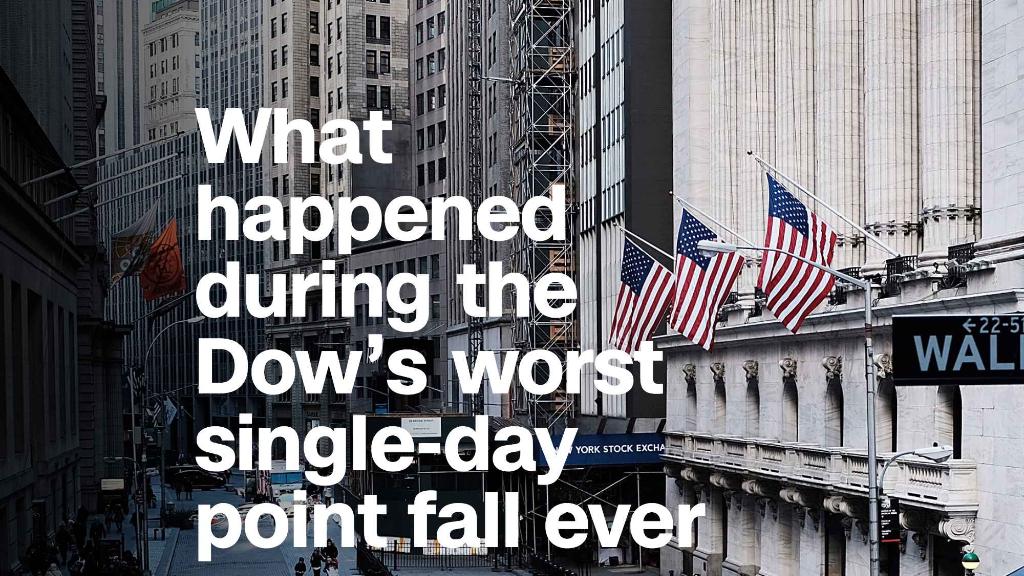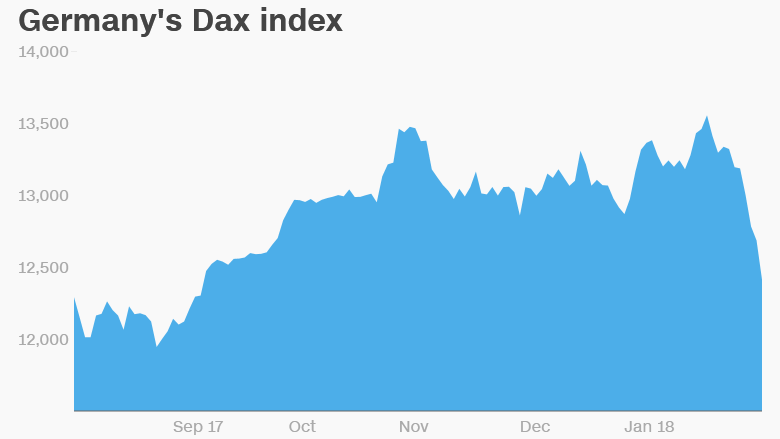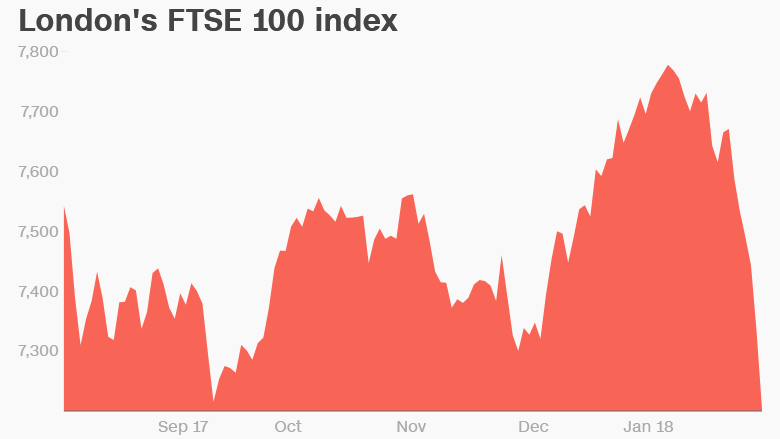
The stock market correction arrived in Europe on Tuesday.
The punishing global stocks rout pushed key indexes in Germany, Spain and Sweden into correction territory, meaning they have dropped 10% or more from recent highs.
All three benchmark indexes suffered losses of 2% to 3% on Tuesday. German and Swedish markets had set new records in recent months.
Others were in danger of joining the correction party: London's FTSE 100 was down 9% from its all-time high in mid-January, and Paris' CAC 40 was trading roughly 8% below its recent record.
Europe, which has suffered years of anemic growth caused by a series of debt crises, turned in its best economic performance since 2007 last year, with growth hitting 2.5%.
That, combined with major stimulus from the European Central Bank, helped boost stocks.

But analysts said that Europe was not immune to some of the factors that have slammed stocks in Asia and the United States. The Dow briefly entered correction territory on Tuesday, falling over 2% at the open.
"This is not Europe specific," said Abi Oladimeji, chief investment officer at Thomas Miller Investment. "There's no particular concerns for Europe ... In time, the selling will ease."
Related: Why you shouldn't panic about the market meltdown (yet)
Jameel Ahmad, global head of currency strategy and market research at FXTM, said the sell off has largely been limited to stocks, with little reaction in currency markets.
"Although the losses might look heavy ... there isn't a definite reason for investors to panic," he said.

Banks and financial services companies were among the hardest hit in Europe.
Deutsche Bank (DB) shares were down nearly 4%, pushing the German lender's losses for 2018 to 17%. Credit Suisse (CS) shares dropped 6%.
Related: Market mayhem puts Trump in a tough spot
Meanwhile, stocks that typically outperform the general market in downturns suffered milder losses.
"[We're] looking at relatively contained falls among food and beverage and consumer-focused shares," said Ken Odeluga, a market analyst at City Index.
Oladimeji said that investors should take a breath.
"We don't see this as the start of something more sinister. It's a correction to get rid of some of the excess exuberance," he said.


